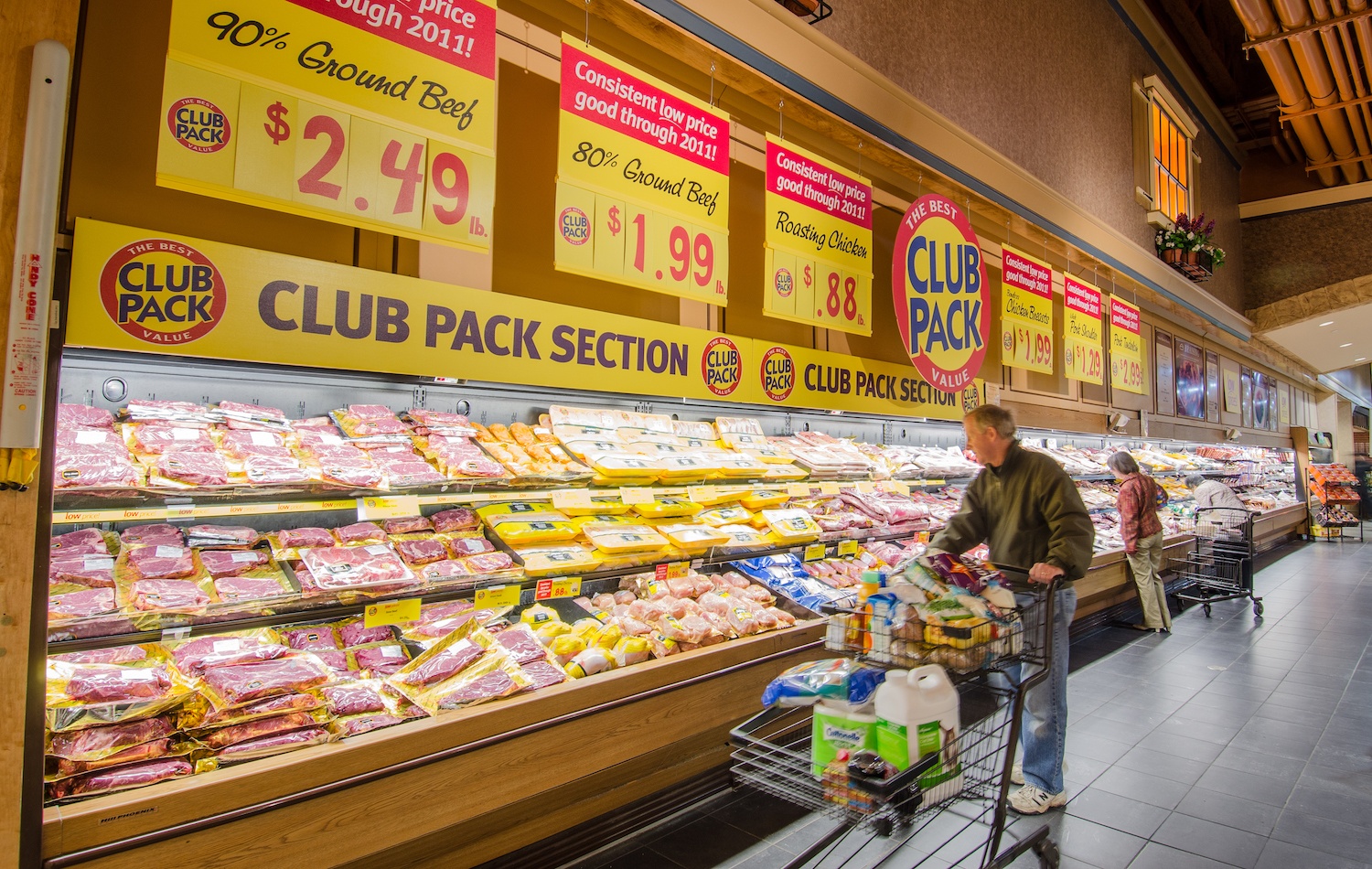Usda Can Beef With Cow on Label

For years, American ranchers have asked for a return to COOL enforcement. It might be coming back.
Right now, if you walk into a grocery store and buy hamburger patties that are labeled as American beef, make sure to read the fine print. Because it's very possible that you're going to eat an Australian-Uruguayan blend.
If you think that sounds odd, you're not alone. For years, farm groups and consumer advocates have asked the Department of Agriculture (USDA) to end that confusion, and reinstate a policy called country of origin labeling. That policy, known as COOL within the industry, required meat companies to disclose where their beef and pork was born, raised, and slaughtered.
But that hasn't been enforced since 2016, after trade disputes led Congress to repeal the short-lived law. Since then, meat that comes in from other countries has been legally sold as a "Product of U.S.A.," or labeled "Made in the U.S.A.," even if it's only been repackaged here. Critics say that has misled shoppers and hurt domestic cattle ranchers, all the while benefiting the world's biggest meat processors.
"People want to know where their food comes from."
It seems these critics have been heard. Last week, in two letters to farmer advocacy groups, USDA said it would revisit the issue, and propose stricter new rules for American-made labels. It's a step in the right direction, said Carrie Balkcom, the executive director of the American Grassfed Association.
"We've been beating the drum for a long time," she said. "People want to know where their food comes from."
In the letters, Rachel Edelstein, a policy administrator in USDA's food safety division, wrote that the agency decided its labeling policy "may be causing confusion" after reviewing a petition submitted by American Grassfed and the Organization for Competitive Markets in 2018, and another from the U.S. Cattleman's Association in 2019. The agency also reviewed nearly 2,600 public comments, Edelstein wrote.
In 2016, processors made nearly $200 in profit per cow, while the people who fed them lost $380 per head.
In their petition, Balkcom's group wrote that current labeling policies don't just confuse shoppers. They also cause financial harm to American farmers and ranchers, because processors who import cheap meat and sell it as a domestic product have the power to force down American cattle prices (particularly if it's grass-fed).
Cattle prices had risen since 2010, after country of origin labeling became mandatory, the petition reads. But by the end of 2015, the year the law was repealed, beef imports had skyrocketed by 33 percent, compared to the year prior. Because of that, the prices for domestic cattle fell by 30 percent, the petitioners wrote. That year, American ranchers should have been seeing even higher prices, due to a drought that thinned herds.
Since then, they wrote, the flow of imported beef has contributed to rising profits of meatpackers at the expense of American cattle ranchers. In 2016, the year after the repeal, processors made nearly $200 in profit per cow, while the people who fed them lost $380 per head. The divide is still growing. Last week, as processors were earning over $600 per animal, and ranchers continued to post losses, a bipartisan group of senators urged the Department of Justice to investigate possible price-fixing.
"We've got to do something to stop this. Otherwise, where do we go from here?"
Ben Gotschall, policy director at OCM, says that restoring COOL wouldn't end that disparity. But at a minimum, he says, it would start to tip the scales back in favor of American cattle ranchers, struggling to stay in business.
"We've got to do something to stop this," he said. "Otherwise, where do we go from here?"
Under the proposed new rules, livestock that was not born in the United States could still be labeled as made in America. That would include meat derived from the millions of imported calves that are raised and fed in border states. This could be a sticking point for cattle breeders, known as cow-calf producers.
There is no timeline for the rulemaking, according to a USDA spokeswoman.
Source: https://thecounter.org/country-of-origin-label-cool-american-beef-usda-grassfed/

Post a Comment for "Usda Can Beef With Cow on Label"